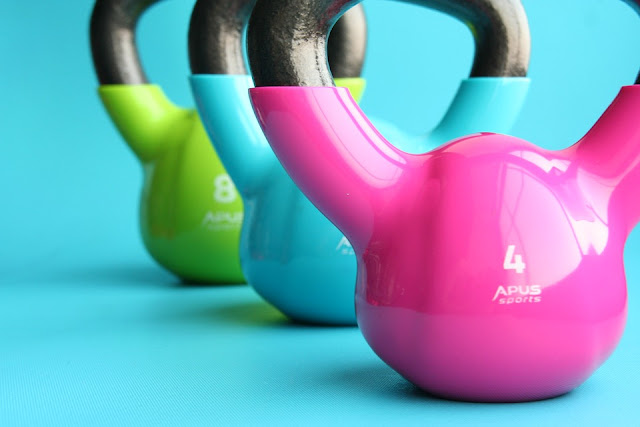Introduction Robert Ransom’s *How to Journal for Beginners* is a beautifully crafted guide that transforms the idea of journaling from an overwhelming task into a fulfilling and approachable habit. The book is not just about putting pen to paper; it’s about finding a space for self-reflection, creativity, and personal growth. Ransom’s warm, conversational tone and practical advice make this a standout resource for anyone curious about journaling, regardless of experience. Book Review: How to Journal for Beginners by Robert Ransom What sets this book apart is its gentle encouragement. Ransom speaks directly to beginners, addressing the fears and doubts that often hold people back. He dismantles the myth that journaling is only for those with artistic talent or profound thoughts, reminding readers that every word they write has value. His message is simple but powerful: journaling isn’t about being perfect—it’s about being authentic. Ransom’s approach is refreshingly practical. He does...
Do you know why Japanese people have the highest life expectancy rate in the world? There are very basic rules that Japanese people used to follow in their daily lives and that is the main reason for their higher life expectancy. Héctor García and Francesc Miralles beautifully explain the term " Ikigai" in their book with the same name. Ikigai means having the reason for getting out of bed every morning. Many of us do not have very purposeful goals and used to live a sloppy life. We must have purposeful and fulfilling goals in order to have a long and happy life. Héctor García and Francesc Miralles interviewed several centenarians (A centenarian is a person who has reached the age of 100 years) and many things were found common about the lifestyle of these people. They all have Ikigai in their life. Let's see what are those basic rules they follow in their life:
1. Eat less: We must not eat more and more. Centenarians explained how they always keep their stomach a little bit empty. There is also a very famous Japanese quote " Hara hachi bun me ni isha irazum ". This proverb explains that we must fill our stomach to only an 80% level. Japanese used to remember this important fact by saying "Hara hachi bun me" whenever they finish their meal. If we observe then we will also find that whenever we overeat, we used to feel laziness and a sense of inactiveness.
2. Be thankful: Centenarians used to remain thankful for each and everything they get. In Japan, people used to keep Butsudan in their homes. A butsudan is generally a wooden cabinet sometimes crafted with doors that enclose and protect a Gohonzon or religious icon, typically a statue or painting of a Buddha or Bodhisattva, or a calligraphic mandala scroll. The Butsudan is used for paying respects to family members who have died and by doing so they used to thank all of their forefathers. Thankfulness makes us a more positive person and positivity used to increase our life expectancy and fulfillment.
3. Do not forget to smile: Smile brings positivity in our life and people who smile more have better chances of being confident, intelligent and capable. Smiling used to lift our face and brighten our eyes and people who often smile used to look younger as compared to people who used to frown all of the time.
4. Tone your body: We must always try to keep our body in shape. It's observed that centenarians used to exercise regularly and that is the main reason for their higher life expectancy. When we start a workout, our body releases chemicals called endorphins. Endorphins interact with the receptors in our brain that reduces our perception of pain in our body. Endorphins also used to trigger a positive feeling in our bodies. Regular workout has been proven to reduce stress, ward off anxiety and feelings of depression, boost self-esteem and improve sleep.
5. Never retire: When we take retirement from things which we love then we used to lose the purpose in our life. It's very important that we must not retire from the things we care about. Research shows that people who retire used to have a lower life expectancy as compared to people who don't. Remaining in some form of job used to give us the reason for getting out of bed daily.
So let's explore that Ikigai of our life and follow these important rules to live a purposeful and more satisfying life.Thanks a lot for reading! If you want this in your inbox every week, join the other 7000+ readers today by subscribing to our newsletter.
Please do share, subscribe and comment!!!
Please follow us for exclusive content:
Facebook: https://www.facebook.com/motivationdrive01/
Instagram: http://www.instagram.com/motivation_drive01
TikTok: https://vm.tiktok.com/GkNRUj/
LinkedIn: https://www.linkedin.com/in/%F0%9F%8E%AF-raja-kumar-8ba50372/?originalSubdomain=in
YouTube : https://www.youtube.com/channel/UCSrGHVFiwydjmWFqMGytxmg
Our Website: https://www.motivationdrive.com/?m=1
1. Eat less: We must not eat more and more. Centenarians explained how they always keep their stomach a little bit empty. There is also a very famous Japanese quote " Hara hachi bun me ni isha irazum ". This proverb explains that we must fill our stomach to only an 80% level. Japanese used to remember this important fact by saying "Hara hachi bun me" whenever they finish their meal. If we observe then we will also find that whenever we overeat, we used to feel laziness and a sense of inactiveness.
2. Be thankful: Centenarians used to remain thankful for each and everything they get. In Japan, people used to keep Butsudan in their homes. A butsudan is generally a wooden cabinet sometimes crafted with doors that enclose and protect a Gohonzon or religious icon, typically a statue or painting of a Buddha or Bodhisattva, or a calligraphic mandala scroll. The Butsudan is used for paying respects to family members who have died and by doing so they used to thank all of their forefathers. Thankfulness makes us a more positive person and positivity used to increase our life expectancy and fulfillment.
3. Do not forget to smile: Smile brings positivity in our life and people who smile more have better chances of being confident, intelligent and capable. Smiling used to lift our face and brighten our eyes and people who often smile used to look younger as compared to people who used to frown all of the time.
4. Tone your body: We must always try to keep our body in shape. It's observed that centenarians used to exercise regularly and that is the main reason for their higher life expectancy. When we start a workout, our body releases chemicals called endorphins. Endorphins interact with the receptors in our brain that reduces our perception of pain in our body. Endorphins also used to trigger a positive feeling in our bodies. Regular workout has been proven to reduce stress, ward off anxiety and feelings of depression, boost self-esteem and improve sleep.
5. Never retire: When we take retirement from things which we love then we used to lose the purpose in our life. It's very important that we must not retire from the things we care about. Research shows that people who retire used to have a lower life expectancy as compared to people who don't. Remaining in some form of job used to give us the reason for getting out of bed daily.
So let's explore that Ikigai of our life and follow these important rules to live a purposeful and more satisfying life.Thanks a lot for reading! If you want this in your inbox every week, join the other 7000+ readers today by subscribing to our newsletter.
Please do share, subscribe and comment!!!
Please follow us for exclusive content:
Facebook: https://www.facebook.com/motivationdrive01/
Instagram: http://www.instagram.com/motivation_drive01
TikTok: https://vm.tiktok.com/GkNRUj/
LinkedIn: https://www.linkedin.com/in/%F0%9F%8E%AF-raja-kumar-8ba50372/?originalSubdomain=in
YouTube : https://www.youtube.com/channel/UCSrGHVFiwydjmWFqMGytxmg
Our Website: https://www.motivationdrive.com/?m=1



Comments
Post a Comment
Please do not add any spam link in the comment box